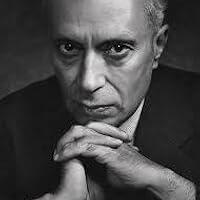
Jawaharlal Nehru
Over de Auteur
Jawaharlal Nehru was a prominent leader in the Indian independence movement and the first Prime Minister of India, serving from 1947 until his death in 1964. A key figure in Indian politics, he played a pivotal role in shaping modern India. Educated at Harrow, Eton, and Cambridge, Nehru was deeply influenced by democratic ideals and socialist principles, which he integrated into his vision for a secular and inclusive Indian state. His writings, particularly his letters and essays, reflect his thoughts on nationalism, freedom, and the responsibilities of governance.
As a statesman, Nehru was instrumental in establishing a framework for India's economic policies, emphasizing industrialization and self-sufficiency. He also championed the Non-Aligned Movement, striving to position India as a leader among developing nations during the Cold War. Nehru's legacy is marked by his commitment to democracy and social justice, making him a significant figure not just in Indian history but also in global politics.